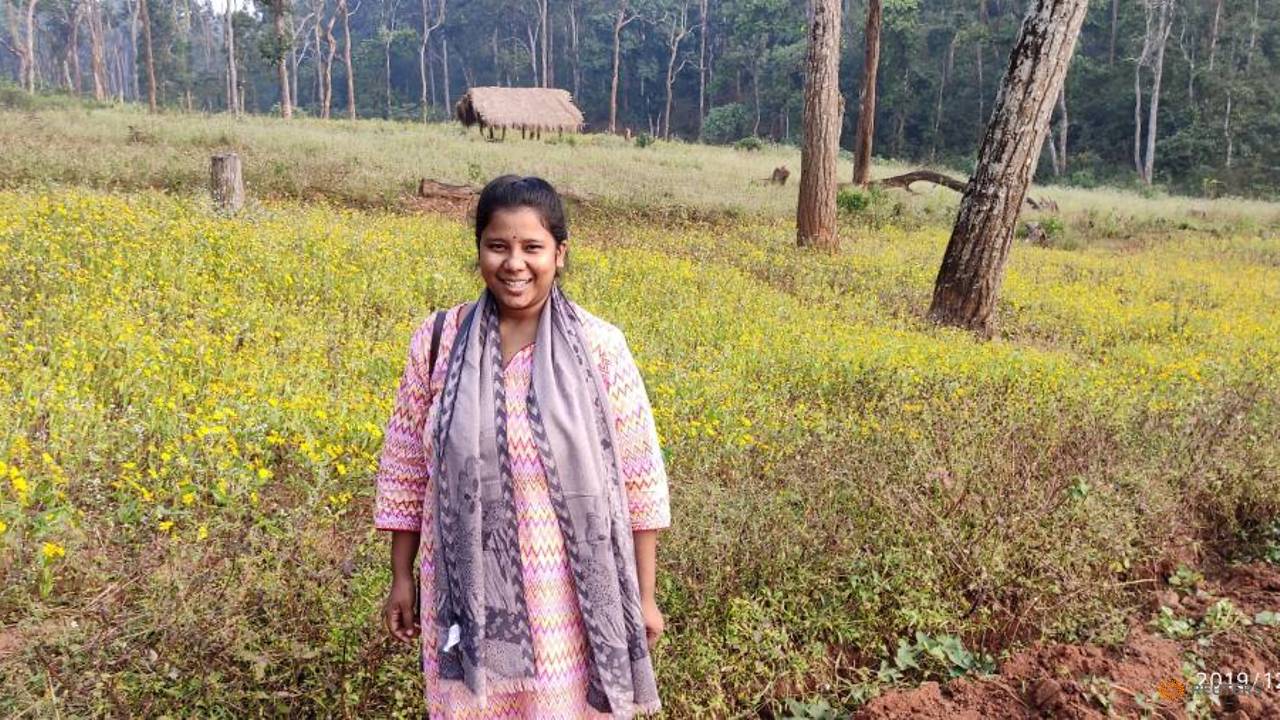
Young activist aims to bring India’s tribal wisdom to the climate fight
SUNDARGARH, India: Indigenous researcher and youth activist Archana Soreng first heard the term "cli..
SUNDARGARH, India: Indigenous researcher and youth activist Archana Soreng first heard the term "climate change" only a few years ago. But she quickly understood that India's tribal communities have been living a climate-friendly lifestyle for generations.
"During my field visits and interactions with the tribes, I realised that concepts … (such as) green living, rain water harvesting, reducing carbon emission and organic farming are actually being practised since the time of our ancestors," she said.
Advertisement
Advertisement
"The modern world is basically 'hijacking' these age-old indigenous practices and principles, in its fight against climate change. So why not give the tribal communities their due credit" – and a bigger leadership role in dealing with climate threats, she asked.
Soreng, 24, a member of the Kharia tribe from the remote village of Bihabandh in India's Odisha state, in late July was selected as one of seven youth advisers on climate action to United Nations Secretary-General Antonio Guterres.
File photo of UN Secretary-General Antonio Guterres at a news conference on the eve of the UN climate summit (COP-25) in Madrid, Spain, Dec 1, 2019. (Photo: REUTERS/Sergio Perez)
Guterres said he hoped the new panel of 18 to 28-year-olds would "provide perspectives, ideas and solutions that will help us scale up climate action".
Advertisement
Advertisement
Selwin Hart, a UN special adviser on climate action, said Soreng "was selected due to her strong work in advocacy and research, (and) in preserving and promoting the traditional knowledge and cultural practices of indigenous communities".
"A HEAVY PRICE"
Soreng, in an interview with the Thomson Reuters Foundation, said indigenous communities were already among those hardest hit by worsening climate-related threats and problems, from extreme weather to deforestation.
Since she was young, she said, strong cyclones have repeatedly hit her state, with families losing their homes and assets. By the time they recover, she said, another storm comes along.
"Why do the least-polluting tribal communities have to pay such a heavy price?" she asked.
READ: Climate change supercharging extreme events, scientists say, as 'super cyclone' Amphan hits Bangladesh and India
In Soreng's family, activism and tribal ties run deep. Her mother Usha Kerketta is a teacher and women's rights activist in her village. Nabor Soreng, her uncle and the first literate member of the family, is a tribal leader and indigenous studies expert.
Since childhood, they said, Soreng has been interested in tribal issues and environmental challenges.
In recent years she has documented the practices and traditional wisdom of Indian tribal and forest groups such as the Paudi Bhuiyan, Juang, Dongria Kondh, Oraon, Santhalis, Ho and her own Kharia tribe.
The effort has aimed not just to help preserve the knowledge but try to see it spread – and to instil greater pride in local traditional communities, said Soreng, who studied regulatory governance at the Tata Institute of Social Sciences and now is a researcher with Vasundhara, an Odisha non-profit focused on the rights, livelihoods and culture of indigenous communities.
As the world battles plastic pollution, for instance, it could learn from indigenous communities that have long used alternatives to plastic, from biodegradable plates made from leaves to toothbrushes of neem tree twigs or date palm, she said.
READ: Commentary: A case for making plastic bags in Singapore ugly – or even embarrassing
Men recycle electronic waste from computers at a workshop in New Delhi, India, Jul 29, 2020. (Photo: REUTERS/Adnan Abidi)
Tribal communities need to become entrepreneurs in fighting climate change, she said, creating businesses that bring them an income and cut out the middle men and private companies that usually usurp their ideas and potential profits.
"I want to act as a bridge between the indigenous communities and policy makers in this regard," she said.
"TAKEN SERIOUSLY"
Soreng's foray into climate activism began about five years ago when she joined a university movement for tribal people. Last year she represented India at a Geneva meeting of the UN Committee on Economic, Social and Cultural Rights.
She is also a member of the climate secretariat's youth constituency, and has been part of a youth caucus on desertification and land use.
She said it was "exhilarating" to have been chosen for the UN secretary-general's youth group, but she also saw it as "a huge responsibility".
“As a member of this international climate forum I will emphasise and propagate the indigenous traditional practices, wisdom and ways of life asRead More – Source

